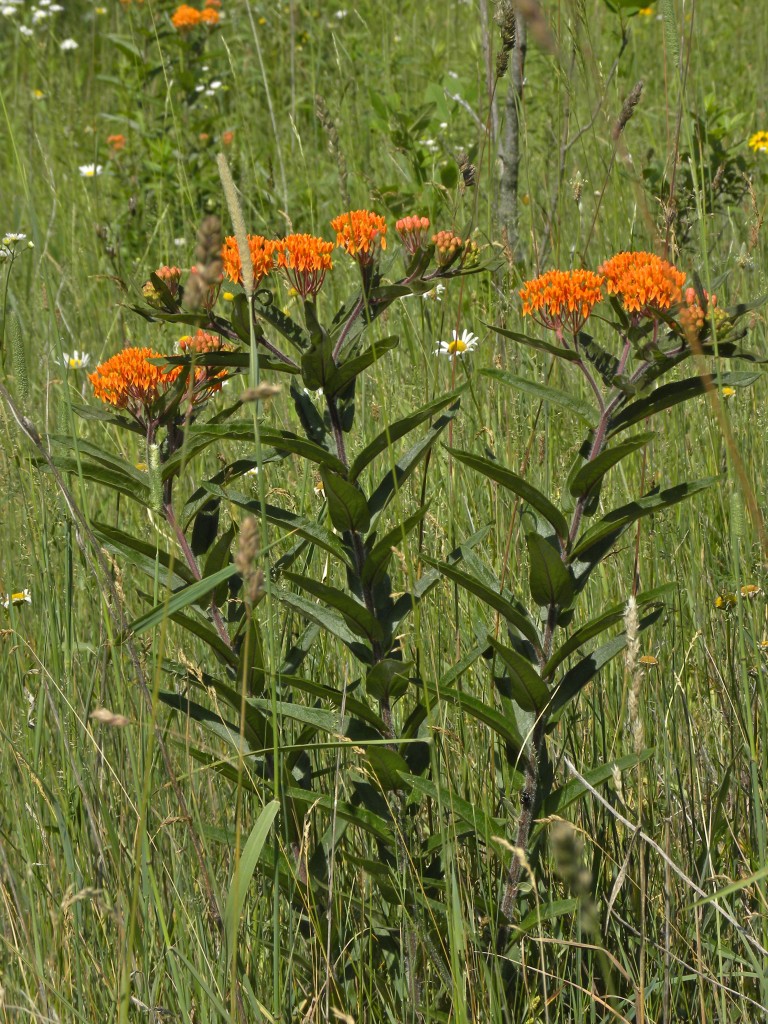June 23 2012. We went out early this morning to continue with one of my volunteer monitoring efforts, this time visiting a marsh. It was a little disappointing; I had high expectations of this site because last year when the water level was high I’d had little difficulty finding Sora and Marsh Wrens. Things change, this year the water is two or three feet lower, almost dried out in places and the formerly luxuriant expanse of cattail seems sparse. We heard as many as four Sora this morning, saw families of Barn Swallows skimming for insects but there were no Marsh Wrens anywhere.
Our fieldwork done we left for a country walk along a dry trail past farmland, a pond or two and into a swampy wood. It was in the woods that I heard the calls of several Veerys, not their winding, fluty exhalations but simple contact notes: “Swerp”, all around us. Then, almost out of hearing range, one started to sing: “Veer Veer veerr ver vr vr” repeated two or three times. Others picked up the theme and around us four or five, maybe more, all singing. We watched one, a smallish thrush with a warm brown back and faded cream breast, come out in the open and briefly sing his part with nervous intensity.
The last time I wrote about the Veery’s song a reader commented that almost all descriptions of it include the word ethereal; and it’s true – few other adjectives fit. Not many people can listen to the Veery without stopping still in their tracks, try this recording on this Music of Nature website and see what you think. The Veery chorus gave the morning its the wow moment, and earned them Bird of the Day.
I used to think warblers were not for mere mortals, that we’d get a glimpse or two during spring migration, lose them all summer and then be confounded by them in their different fall plumage. Well I’ve become persuaded otherwise now that I have the time in my life to get out more, go further and look closer. It’s still the case that many of these spectacular little birds vault right over us in May to breed much further north: Northern Parula, Blackpoll and Palm Warblers for example. But even this morning’s gentle three-hour outing turned up six warbler species: Northern Waterthrushes singing alongside the Veerys, a trilling Pine Warbler in the tops of a plantation of Austrian Pines, a Common Yellowthroat at the edge of a pond, Yellow warblers popping in and out of low shrubs everywhere, a distant Ovenbird and a Blue–winged Warbler in the scrubby margins of a power line corridor.
We spent a while picking strawberries and then went looking for Butterfly Weed, a close relative of Milkweed, and found a nice patch of it among some scrubby hawthorns and dogwoods, it gave us this brilliant splash of colour to end our morning with.